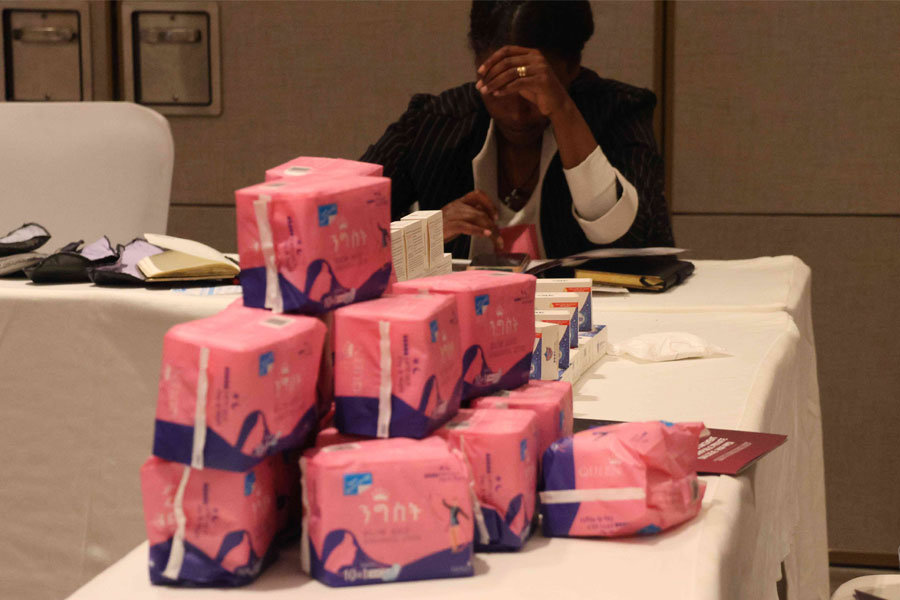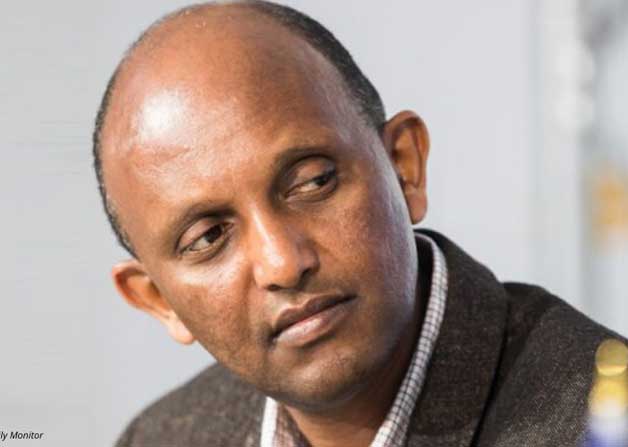
Commentaries | Jan 23,2021
Mar 5 , 2022
By Christian Tesfaye
There is a war once again in Europe, decades after the Yugoslav Wars led to the death of over 100,000 people and the emergence of new states in Eurasia. This time around, it is between a revisionist Russia and a defiant Ukraine fighting to preserve its independence, after the former’s invasion. The situation is changing rapidly but the Ukrainians are believed to have put up a much stronger resistance than expected, with massive military financial support coming from Western Europe and the United States.
As tragic as the whole thing is, it is also exposing some of the racism embedded in global media coverage and the response being taken in response to Russia’s aggression. The most offending has been how reporting on the war is trying to differentiate the crisis from those that take place in the Middle East and Sub-Saharan Africa. There seems to be an effort to remind us that this time around, the war is affecting White people with European blood running through their veins, something not meant to happen to such a “civilised” part of the world.
A Ukrainian official said that this is a very emotional experience for him because “people with blue eyes and blond hair” are being killed. A CBSreporter, asked why Poland is so willing to take in refugees now, said, “These are not refugees from Syria … these are Christians, they are White.”
Even the response to the refugee crisis is markedly different as a million Ukrainians flee their country. The European Union is planning to grant a right of stay for millions of Ukrainians that may eventually flee the conflict. It would allow them to stay for up to three years in any EU country with the guarantee of social welfare and employment and residency permits. The 27-country bloc has a temporary protection directive from back in the 1990s that has never been activated, even when Africans and people from the Middle East fleeing conflict and deprivation were drowning in the Mediterranean Sea trying to cross into Europe. For those non-Whites, it was mostly barbed wires and walls that greeted them. European Commission President Ursula von der Leyen visited the Greek-Turkey border once and proclaimed that the former was “our European shield.”
The saddest scene is perhaps on the Poland border where Africans are being reportedly turned away as they try to escape the war in Ukraine. They risk being denied a passage of safety because, if anyone can believe it, they are unable to produce the appropriate visa.
The African Union has spoken out against the double standards, at least on the matter of Africans in Ukraine not being able to cross the border into Poland. It has pointed out that any person fleeing conflict has a right to cross a border under international law. It has not minced words, adding that singling out Africans at the border would be “shockingly racist.”
But the AU needs to do more. It has to make sure that the responses by the United States and the European Union to the Russia-Ukraine conflict do not make collateral damage out of African countries. Russia is one of the largest exporters of oil around the world. Both countries also export large amounts of inputs for fertilisers and make up a third of global wheat exports. Sanctions that would exacerbate already limited supply due to the war and COVID-19 induced supply problems will raise the cost of living for millions of poor Africans whose countries do not provide them with adequate social welfare.
The US and Europe have been careful not to debilitate energy exports from Russia through sanctions (events are fast-moving so this may change), because this would worsen inflation back home. But they do not care as much about fertilisers and wheat – especially the latter as they are exporters themselves.
The AU must make the case that some of the sanctions will have massive unintended consequences for food insecurity in most African countries. It should stress an immediate ceasefire between the two parties and for Russian forces to pull out of Ukraine immediately but also lobby for exemptions on wheat and fertiliser to the sanctions being applied.
The more the AU fails to make itself heard, the more likely that the powers that be will continue to apply double standards that will make a collateral damage out of Africa.
PUBLISHED ON
Mar 05,2022 [ VOL
22 , NO
1140]


Commentaries | Jan 23,2021

Editorial | Jul 20,2019

Commentaries | Jul 10,2021

Sunday with Eden | Aug 25,2024

Viewpoints | Aug 10,2024

Viewpoints | Dec 10,2022

Life Matters | Jun 13,2020

Agenda | Jun 08,2025

Commentaries | Nov 12,2022

Radar | Jan 23,2021

My Opinion | 132272 Views | Aug 14,2021

My Opinion | 128692 Views | Aug 21,2021

My Opinion | 126600 Views | Sep 10,2021

My Opinion | 124206 Views | Aug 07,2021





Dec 22 , 2024 . By TIZITA SHEWAFERAW
Charged with transforming colossal state-owned enterprises into modern and competitiv...

Aug 18 , 2024 . By AKSAH ITALO
Although predictable Yonas Zerihun's job in the ride-hailing service is not immune to...

Jul 28 , 2024 . By TIZITA SHEWAFERAW
Unhabitual, perhaps too many, Samuel Gebreyohannes, 38, used to occasionally enjoy a couple of beers at breakfast. However, he recently swit...

Jul 13 , 2024 . By AKSAH ITALO
Investors who rely on tractors, trucks, and field vehicles for commuting, transporting commodities, and f...

Jul 12 , 2025
Political leaders and their policy advisors often promise great leaps forward, yet th...

Jul 5 , 2025
Six years ago, Ethiopia was the darling of international liberal commentators. A year...

Jun 28 , 2025
Meseret Damtie, the assertive auditor general, has never been shy about naming names...

Jun 21 , 2025
A well-worn adage says, “Budget is not destiny, but it is direction.” Examining t...

Jul 13 , 2025 . By YITBAREK GETACHEW
The Addis Abeba City Revenue Bureau has introduced a new directive set to reshape how...

Jul 13 , 2025 . By BEZAWIT HULUAGER
Addis Abeba has approved a record 350 billion Br budget for the 2025/26 fiscal year,...

Jul 13 , 2025 . By RUTH BERHANU
The Addis Abeba Revenue Bureau has scrapped a value-added tax (VAT) on unprocessed ve...

Jul 13 , 2025 . By NAHOM AYELE
Federal lawmakers have finally brought closure to a protracted and contentious tax de...